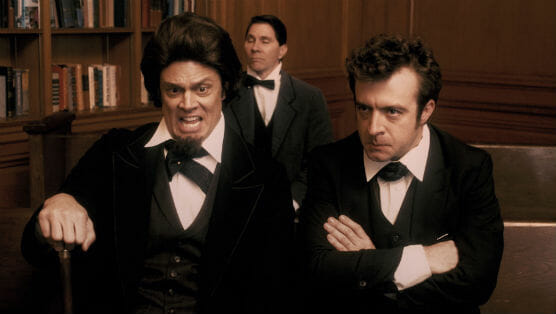Drunk History: “Charleston”
(Episode 2.05)

I think it’s time to throw a little more credit Derek Waters’ way as the secret ingredient sustaining Drunk History’s otherwise one-note premise. And that’s saying something after an episode featuring Patton Oswalt as a guest star.
It’d be easy for Drunk History to be solely a point-and-laugh show. Ha, that guy burped! And he’s not making any sense! Because he’s drunk! And there’s certainly plenty of that. But those moments are offset by the smartly affectionate interstitials in the featured city, such as this week’s look at Waters harvesting oysters with an old man named Goat who knows a good oyster when he sees one. And in the real-life sections of each segment, it’s clear Waters genuinely cares about each of his storytellers. When someone is a good three sheets to the wind, the bemused expression on Waters’ face is not a mocking one. He’s not there to make anyone look foolish. Everyone is in on the joke, and that warmth, fostered by Waters, gives the rest of us permission to laugh.
-

-

-

-

-

-

-

-

-

-

-

-

-

-

-

-

-

-

-

-

-

-

-

-

-

-

-

-

-

-

-

-

-

-

-

-

-

-

-

-








































